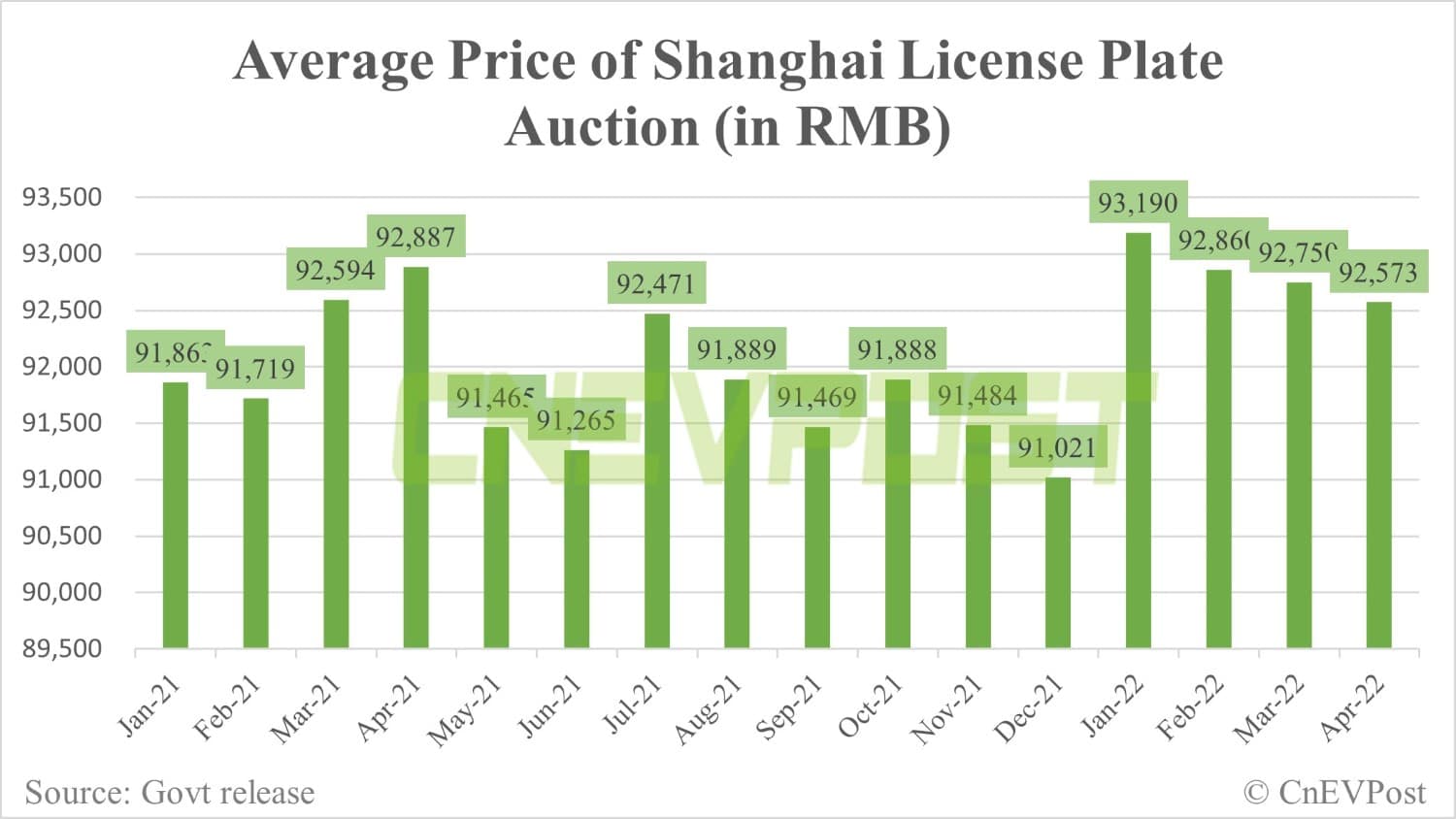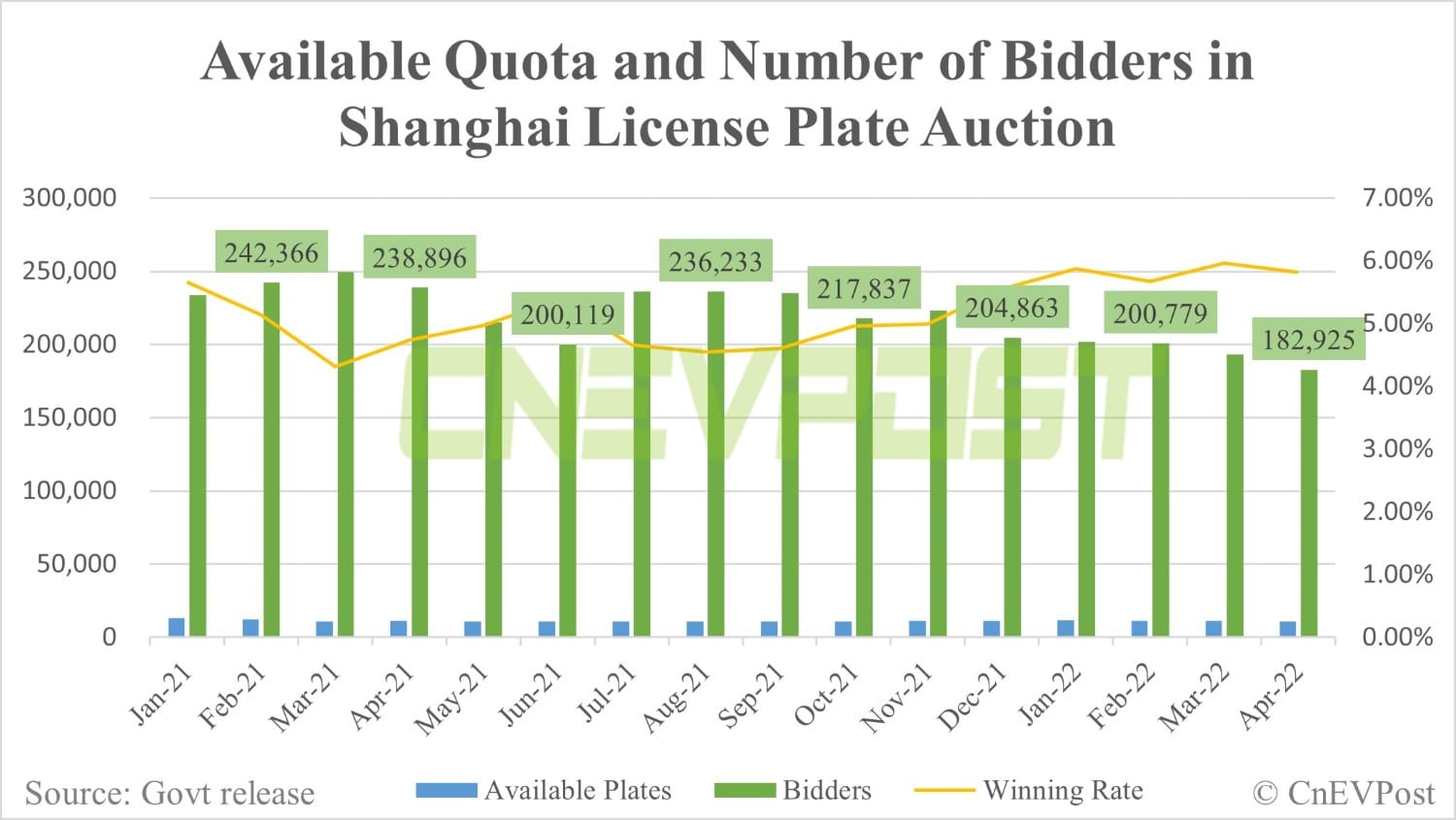There were 182,925 bidders for 10,300 license plates for fuel vehicles this month, a winning rate of 5.8 percent.
As one of the most supportive cities for the new energy vehicle (NEV) industry in China, Shanghai is an important window into people's preferences for fuel vehicles and electric vehicles (EVs).
Shanghai's auction for this month's fuel vehicle license plate quota was held today, with the lowest price standing at RMB 92,500 ($14,230) and the average price at RMB 92,573, down RMB 177 from last month's RMB 92,750, according to information released today by the city government.
The available quota for the month was 10,300, with 182,925 participants in the auction and a winning bid rate of 5.8 percent.
The interesting change is that the average price has decreased for the third month in a row since February and the number of bidders has decreased for the fifth month in a row since last December.
As background, Shanghai issues free special license plates to consumers who buy NEVs, and they can only be used for the vehicles they buy, not transferred to new vehicles.
For fuel vehicles, Shanghai offers more than 10,000 quotas each month, which consumers need to obtain through a bidding process.
Recipients of fuel license plates can use them on any vehicle they purchase, although almost no one will use them on NEVs.
The Shanghai government sets a guide price before the start of each monthly auction, and this price has remained largely stable for the past few years.
Since last year, Shanghai has had about 200,000 bidders each month, with a win rate of less than 6 percent.
For comparison, Beijing uses a lottery system for both fuel and NEV quotas, and eligible residents need to wait in line in that system, usually for many years, before they can get the quota.
So, what is the current level of NEV ownership in Shanghai?
At the end of March, Shanghai had 4,846,772 all vehicles, with 631,346 small NEVs and 16,353 large NEVs, their combined share being 13.36 percent, according to data released earlier this month by the China Passenger Car Association (CPCA).
New registrations of all models in Shanghai in March were 37,755 units, down 36.94 percent from a year ago and up 39.89 percent from February, according to the CPCA.
In March, 17,889 passenger NEVs were registered in Shanghai, down 21.79 percent from a year ago and up 51.05 percent from February, implying a penetration rate of 47.38 percent.
China currently exempts NEVs from purchase taxes and provides purchase subsidies, benefits that are not available to traditional fuel vehicles.

